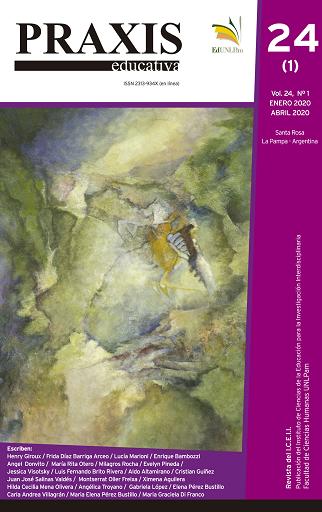We must overcome our atomization to beat back neoliberal fascism
DOI:
https://doi.org/10.19137/DOI:%20https://dx.doi.org/10.19137/praxiseducativa-2020-240102Keywords:
education, social atomization, political authoritarianism, neoliberal fascism, pedagogy, hopeAbstract
The work focuses on education, social atomization and the terror of political authoritarianism and neoliberal fascism. Two different political tremors that shake the world these days are analyzed: on the one hand, the spread of resistance to the emerging neo-fascism; and on the other, a new emergence in massive forms of collective resistance against neoliberalism. The question lies about how education gives rise to ways of selftraining that can allow people to resist fascist and neoliberal mentalities. Pedagogy, as a resistance tool, opens a space for translation, criticism and resistance. This is particularly crucial in the face of atomization that isolates individuals and fosters a sense of helplessness by stating that the existing order cannot be changed. In order to dismantle these regimes, we must also find a way to break the atomization patterns that make them possible. Without hope there is no possibility of resistance, dissent and struggle. Organization is a condition for struggle, and hope is s condition for organization. Hope expands the space of the possible and
becomes a way to recognize and name the incomplete nature of the present.
Downloads
Published
Issue
Section
License
Copyright Notice
Editorial Committee Educational Praxis Magazine:
I hereby declare that I am the author of the article titled (article name), that it is original and my own and that it was not previously published in any other format or medium. I declare to know that the magazine will not charge me any type of fee under any circumstances, nor will I receive any type of monetary compensation If it were accepted for publication in Educational Praxis, I authorize the aforementioned magazine to publish it digitally and to advertise it on its social networks.
If the work is published, I adhere to the Creative Commons license called "Attribution - Non-Commercial Share Alike CC BY-NC-SA", through which it is allowed to copy, reproduce, distribute, publicly communicate the work and generate derivative works, as long as when the original author is cited and acknowledged. This license has been used since September 2018. In 2016 CC BY NC ND 4.0 was adhered to; and in the years 2017 and 2018 (January-August) CC BY NC 4.0.
This CC BY-NC-SA Share Alike license does not, however, permit commercial use of the work. As an author, the journal may establish additional agreements for the non-exclusive distribution of the version of the work published in the journal, it allows me to self-archive the published articles, in their post-print version, in institutional, thematic repositories, personal web pages or any other relevant use. with the recognition of having been first published in this journal.
Educational Praxis adheres to DORA (Declaration on Research Assessment) signed in San Francisco, California, on December 16, 2012, and to the Declaration of Mexico (Joint Declaration LATINDEX - REDALYC - CLACSO - IBICT).















_(1)2.png)


3.png)











_(2).png)






2.jpg)









